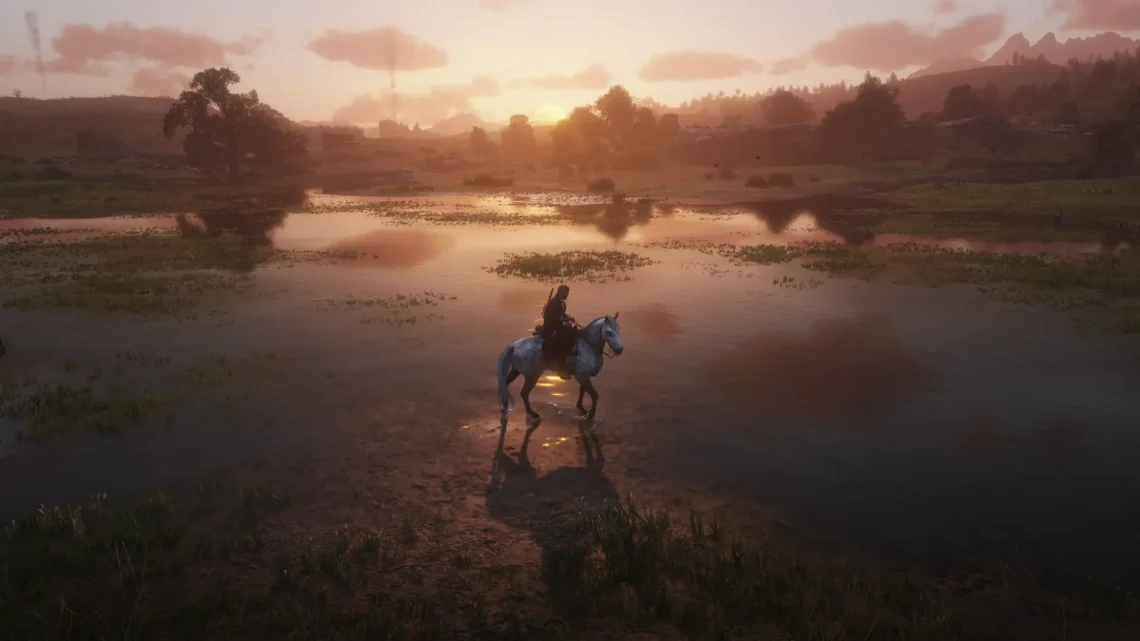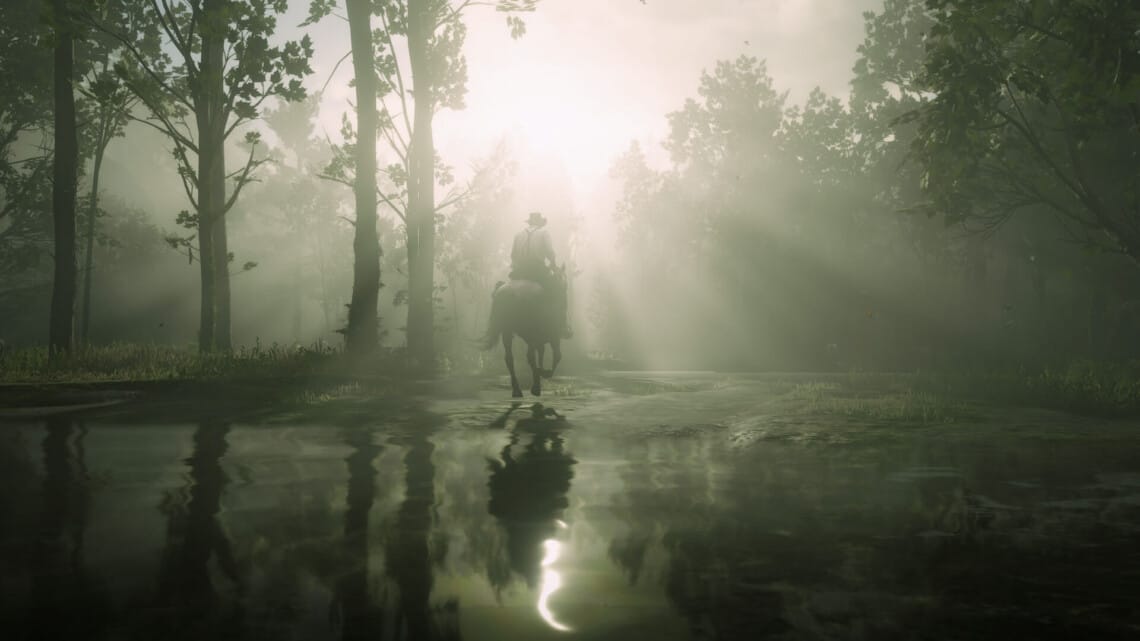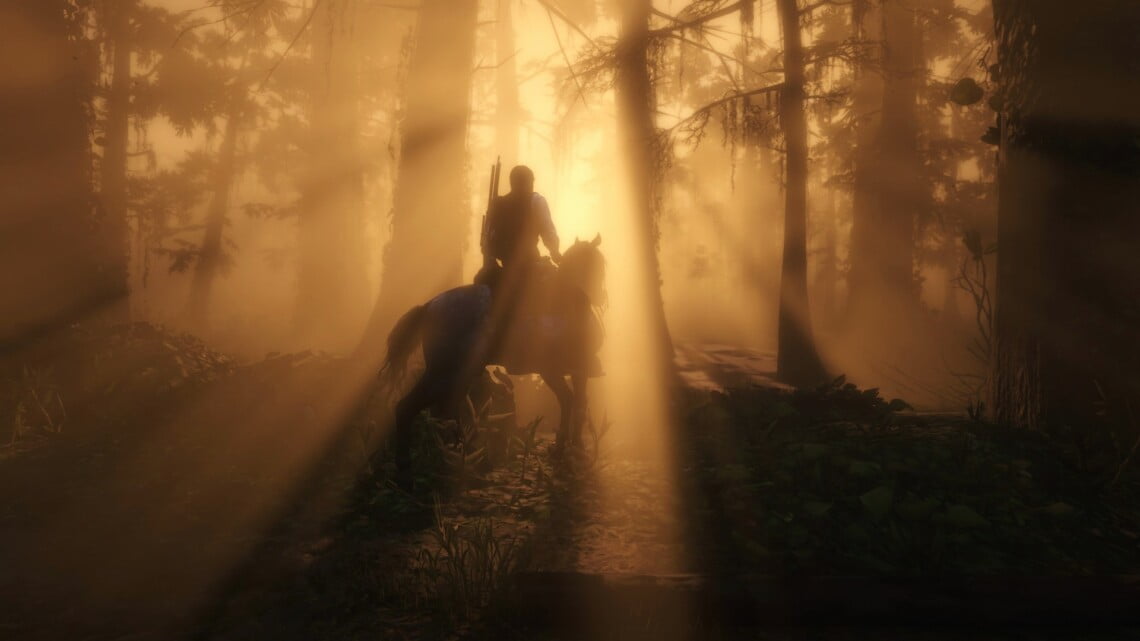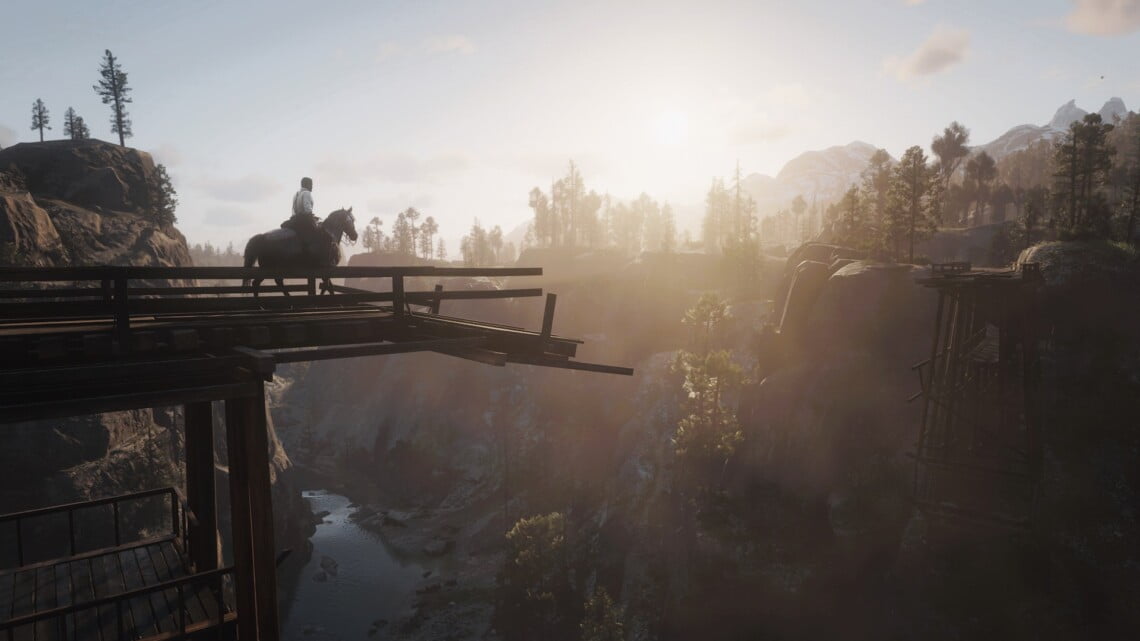More allusions to Oakley Hall's Warlock in RDR2: horses, events, dialog, and more.
At the same time as a version of the fall of King Arthur’s court unfolds, another allegory plays out in Red Dead Redemption 2: the quest for the grail. More than King Arthur, perhaps even more than Lancelot, Arthur Morgan resembles another character: Perceval, the grail knight.
Paradise Lost is one of the most celebrated literary works of all time. Paradise Regained, John Milton's followup to the epic, is less so. The second poem tells the story of the Son (Christ) wandering in the desert, where, after 40 days and 40 nights, Satan accosts him and tries to tempt him to break his obedience to God. It is, quite frankly, not very interesting: there's no suspense at all. Satan losing is foregone conclusion. The Son is totally unbothered.
Paradise Lost, as one of the most essential influences of Red Dead Redemption 2, naturally contributes more than characters to the game’s narrative. Like the poem, one of RDR2’s central themes involves the gaining of knowledge. However, the game and the poem come to divergent conclusions about that concept. What Milton condemns, RDR2 declares imperative.
One of the ways Red Dead Redemption 2 often makes literary allusions is in prophetic statements from special NPCs. Blind Man Cassidy gives Arthur Morgan one that alludes to Paradise Lost and that appears, at first blush, to be about Dutch Van der Linde and Micah Bell: “Your father is seduced by the one with the forked tongue. It's no use hoping.” However, that isn't the truest reading of this prophecy. Dutch is also Satan/Eve (as we’ve seen, these characters combine in Dutch) to Hosea Matthews’s Adam. It's Hosea who is Arthur's truest father.




